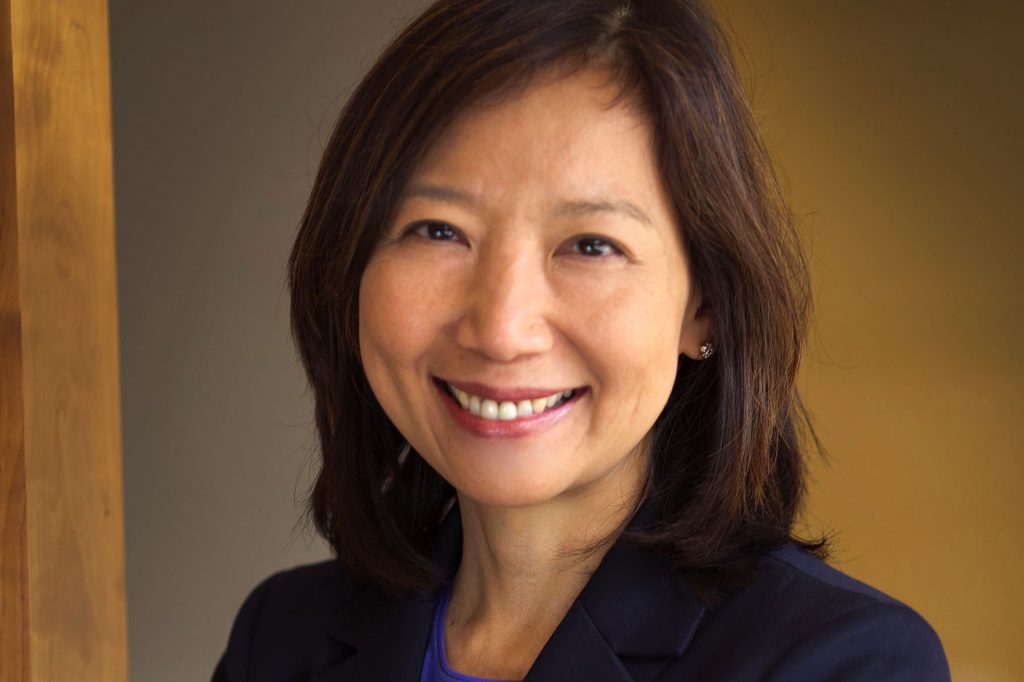Though this was Boston College Law School’s third time co-hosting the International IP Summit with Ropes & Gray, the forum launched this year by exploring a topic that in previous years would have seemed far flung: the legal issues intertwined with the development of a Covid-19 vaccine.
Sandy Leung ’84, executive vice president and general counsel at Bristol-Myers Squibb, kicked off the four-day intellectual property summit on October 20 with a keynote speech addressing the IP challenges that may lay ahead for the biopharma industry. Leung serves as the primary legal advisor to the company’s board of directors and senior leadership and is responsible for shaping the company’s legal strategy.
The world changed almost overnight, Leung said, but the bio pharma industry has continued its mission for innovating new life-saving medicines and technologies.
“Covid has really accentuated the need for innovative, lifesaving medicines, but the question of who innovates it, how to pay for that innovation, who receive[s] that life medicine, and how individuals will pay for it remains the same,” Leung said. “And IP is at the forefront of these questions because IP protection drives the innovation that provides the cutting-edge technology to address a pandemic.”
Though antiviral medicines are not the specialty of Bristol-Myers Squibb, Leung said the company is using its expertise in immunology to evaluate compounds that might have an impact on the inflammatory immune response associated with Covid-19. The pharmaceutical company has also expanded the eligibility of its existing patient support programs to include patients who are unemployed and uninsured due to the pandemic.
Leung said the scale and speed of the development of a Covid-19 vaccine is unprecedented, adding that the public and private partnerships are “an example of what the industry is capable of doing for the common good.”
While the pandemic brings an air of uncertainty to biopharma, the field also has its eyes on the Supreme Court— where action on the Affordable Care Act could destabilize the industry. If the ACA is ruled unconstitutional, the Biologics Price Competition and Innovation Act, a key law that provides abbreviated approval pathways for pharmaceuticals, could become collateral damage.
But a potential Supreme Court ruling isn’t the only large-scale threat to the IP world.
“The move towards the erosion of IP rights on the global basis is really frightening,” Leung said.
“The pharma industry recognizes that more must be done within the industry and with governments to balance the need to continue to invest in new medicines while making our drugs more affordable and more accessible to patients. But weakening the patent system is not the answer.”
The summit, which was held virtually this year, featured 21 panelists from around the globe, including three BC Law faculty: David Olson, faculty director for the Program on Innovation and Entrepreneurship (PIE); Dean Vincent Rougeau; and Joseph Liu, who writes and teaches in the areas of copyright, trademark, property, and internet law.
Among the topics discussed in the eight speeches, panels, and workshops were digital health in China, hot topics and emerging trends in IP and innovation, deal-making in times of escalating international sanctions and trade disputes, and cross-border IP protection and enforcement in a changing landscape.


